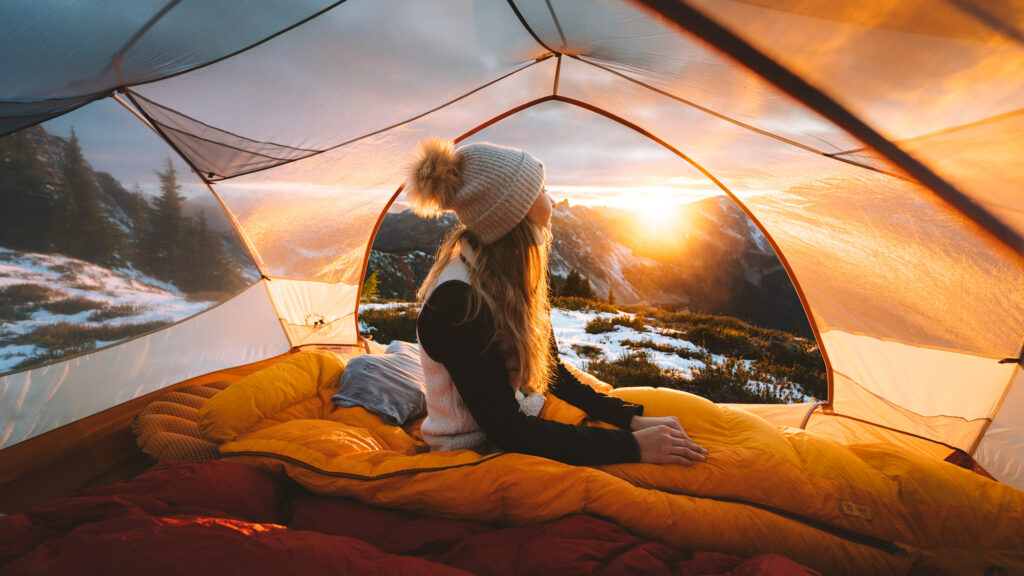Introduction
Adventure travel offers thrilling experiences and the opportunity to explore new destinations. However, embarking on adventurous journeys can also disrupt sleep patterns and impact overall well-being. As an adventure traveler, ensuring sufficient and quality sleep is crucial for maintaining energy levels, optimizing performance, and enhancing the overall travel experience. In this comprehensive guide, we will explore the challenges adventure travelers face when it comes to sleep, the importance of sleep for adventure travel, and practical strategies to promote restful sleep while on exciting expeditions.
Understanding the Challenges of Sleep for Adventure Travelers
Adventure travel presents unique challenges that can disrupt sleep patterns and contribute to sleep disturbances. These challenges include
- Changing Time Zones: Adventure travel often involves crossing multiple time zones, leading to jet lag. Jet lag can disrupt the body’s internal clock, resulting in difficulties falling asleep, staying asleep, and feeling rested.
- Unfamiliar Environments: Adventure travelers frequently find themselves in unfamiliar environments, such as camping sites, hostels, or accommodations with different sleeping arrangements. These unfamiliar settings may be noisy, uncomfortable, or lack the necessary amenities for quality sleep.
- Physical Exertion: Many adventure activities require physical exertion, which can leave travelers feeling fatigued and potentially affect sleep quality. Additionally, intense physical activity close to bedtime can stimulate the body, making it difficult to relax and fall asleep.
- Environmental Factors: Adventure travel often involves exposure to varying climates, altitude changes, and different weather conditions. Extreme temperatures, high altitudes, and noisy surroundings can disrupt sleep and impact sleep quality.
The Importance of Sleep for Adventure Travel
Getting adequate sleep while engaging in adventure travel is crucial for several reasons
- Energy and Performance: Quality sleep is essential for maintaining energy levels and optimal physical performance during adventurous activities. It allows adventure travelers to fully enjoy their chosen activities, whether it’s hiking, mountain climbing, or exploring new landscapes.
- Cognitive Function: Sleep plays a vital role in cognitive function, including memory consolidation, attention, and decision-making. Adequate sleep enhances mental clarity, allowing adventure travelers to navigate unfamiliar environments and make informed choices.
- Safety: Being well-rested improves alertness and reduces the risk of accidents or injuries during adventurous activities. Staying vigilant and making sound judgments in potentially risky situations is crucial for ensuring a safe travel experience.
- Overall Well-being: Quality sleep promotes overall physical and mental well-being. It helps regulate mood, reduces stress levels, and supports immune function, which is particularly important when exploring new environments and potentially encountering different pathogens.
Strategies for Promoting Restful Sleep During Adventure Travel
To ensure restful sleep during adventure travel, consider implementing the following strategies
- Plan for Adequate Sleep Time: Prioritize sleep by allocating sufficient time for rest in your travel itinerary. Recognize that sleep is essential for maintaining energy levels and enjoying the adventure fully.
- Adjust to Time Zone Changes: If traveling across time zones, try to adjust your sleep schedule gradually before departure. Upon arrival, expose yourself to natural daylight to help reset your internal clock.
- Create a Comfortable Sleep Environment: Carry sleep essentials such as a comfortable sleeping bag, earplugs, an eye mask, and a travel pillow to create a familiar and comfortable sleep environment regardless of the accommodation.
- Practice Good Sleep Hygiene: Maintain healthy sleep habits, including following a consistent sleep schedule, avoiding stimulating activities close to bedtime, and creating a relaxing pre-sleep routine to signal your body that it’s time to wind down.
- Consider Sleep Aids: If necessary, consider using sleep aids such as earplugs or white noise machines to mask environmental noises, or sleep masks to block out light. However, use sleep aids judiciously and only as needed.
- Manage Physical Exertion: Engage in physical activities earlier in the day to allow your body enough time to wind down before bed. Avoid intense exercise close to bedtime, as it can stimulate the body and make it difficult to fall asleep.
- Prioritize Rest and Recovery: Incorporate rest days into your adventure travel itinerary to allow your body time to recover and recharge. Use these days to relax, engage in leisurely activities, and focus on getting quality sleep.
- Practice Relaxation Techniques: Explore relaxation techniques such as deep breathing, meditation, or gentle stretching to promote relaxation and prepare your body for sleep.
- Stay Hydrated and Watch Your Diet: Proper hydration and a balanced diet contribute to overall well-being and can positively impact sleep quality. Avoid heavy meals, caffeine, and alcohol close to bedtime as they can disrupt sleep.
- Adapt to Environmental Factors: Prepare for varying environmental conditions by bringing appropriate clothing, sleeping gear, or accessories. Adjust your sleeping arrangements to accommodate changes in altitude, temperature, or noise levels.
Conclusion
Quality sleep is essential for adventure travelers to maximize their travel experiences and maintain optimal physical and mental well-being. By understanding the challenges of sleep during adventure travel and implementing practical strategies to promote restful sleep, travelers can enhance their energy levels, cognitive function, and overall enjoyment of the adventure. Prioritize sleep, adapt to changing environments, and make sleep a priority during your adventure travels to ensure a memorable and rejuvenating experience.

